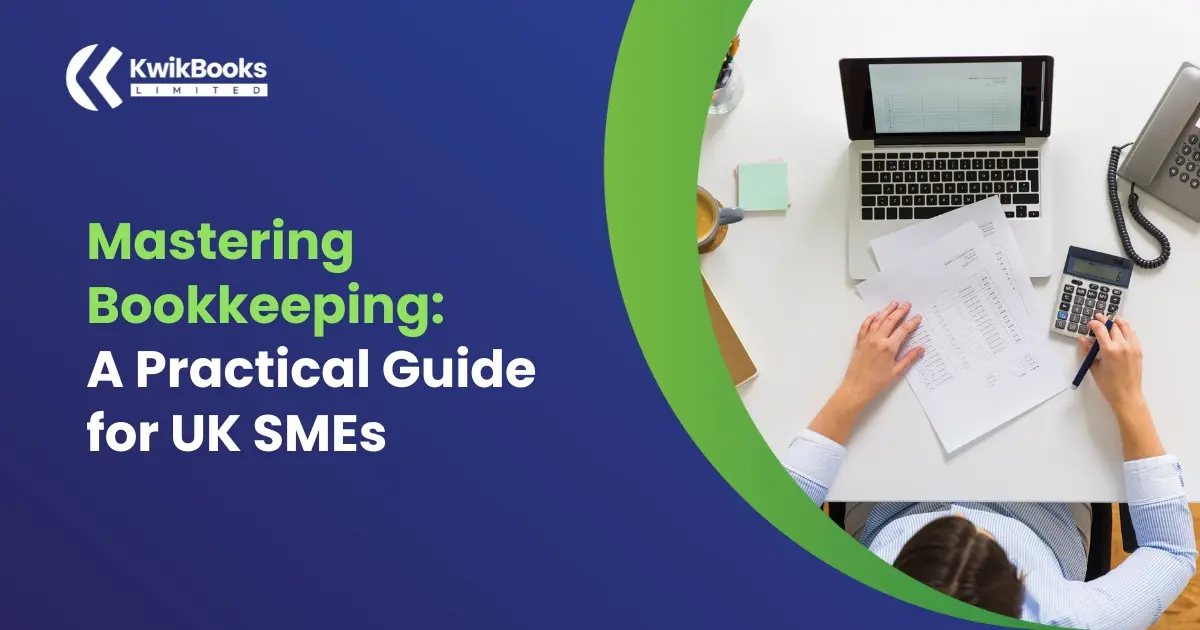
Mastering Bookkeeping: A Practical Guide for UK SMEs
In the world of small and medium-sized enterprises (SMEs), juggling day-to-day operations can easily push financial record-keeping to the backburner. However, solid bookkeeping isn’t just a compliance necessity—it’s the backbone of a financially stable and thriving business. If you’re running an SME in the United Kingdom, understanding the basics of bookkeeping can make all the difference to your growth and longevity.
Here are ten indispensable bookkeeping tips every UK-based SME should follow to keep finances in order and support business success.
1. Separate Business and Personal Finances
Combining your personal and business transactions in a single account may seem convenient, but it creates unnecessary confusion and potential tax complications. Open a dedicated business bank account to ensure cleaner records, clearer cash flow tracking, and fewer headaches at financial year-end.
2. Stay Diligent with Record-Keeping
The importance of maintaining detailed financial records cannot be overstated. Store every invoice, receipt, and bank statement—even the small ones. Whether you go digital or keep physical files, good records enable you to track spending, prepare VAT returns, and meet HMRC obligations confidently.
3. Reconcile Bank Accounts Frequently
Regular bank reconciliation allows you to spot errors, track payments, and identify unauthorised charges. By comparing your records against your bank statement monthly (or even weekly), you’ll maintain financial accuracy and prevent small mistakes from becoming big issues.
4. Use Reliable Accounting Software
Gone are the days of manual ledgers. Embrace tools like Xero, QuickBooks, or FreeAgent—trusted by thousands of UK businesses. These platforms automate recurring tasks, reduce the margin for error, and generate real-time reports that offer a clear view of your company’s financial health.
5. Track Every Pound In and Out
Every transaction matters. Make it a habit to categorise all income and expenses promptly. By doing so, you’ll have accurate cash flow data at your fingertips, avoid overspending, and make end-of-year financial reporting far less stressful.
6. Prepare for Tax All Year Round
Taxes can sneak up on you if you’re not planning ahead. Set aside a portion of your earnings regularly to cover VAT, Corporation Tax, and PAYE liabilities. Don’t let an unexpected tax bill disrupt your operations—being proactive gives you control.
7. Don’t Lose Sight of Receivables
Late payments can stall your cash flow and limit growth. Monitor accounts receivable consistently and follow up with clients when payments are overdue. Consider setting clear payment terms and using invoicing tools with automated reminders.
8. Keep a Close Eye on Cash Flow
Cash flow is often the first sign of trouble—or opportunity. Use forecasts and statements to monitor trends in your incoming and outgoing funds. This helps you plan for quiet periods, invest wisely, and make informed operational decisions.
9. Stick to Important Financial Deadlines
From payroll schedules to Companies House filings, missing key deadlines can lead to penalties. Use a digital calendar or reminders in your accounting software to stay on top of VAT submissions, tax returns, and payment obligations.
10. Know When to Call in the Pros
As your business grows, so does the complexity of your finances. Enlisting a professional can bring peace of mind and free you to focus on running your business. A reliable bookkeeping partner ensures compliance and offers valuable financial insights tailored to your sector.
Why Bookkeeping Should Be a Top Priority for UK SMEs
Let’s be clear—bookkeeping isn’t just about balancing the books. It plays a critical role in business operations and success. Here’s why it deserves your attention:
Clarity Leads to Smarter Business Decisions
Well-maintained financial data gives you the clarity needed to make informed decisions. Whether you’re planning expansion, budgeting for marketing, or hiring staff, accurate figures build confidence.
Smooth and Compliant Tax Preparation
With the right bookkeeping practices, your year-end tax preparations become simpler and more accurate. Timely, organised records help you claim every allowable expense, and avoid last-minute stress when dealing with HMRC.
Maintain Healthy Cash Flow
Bookkeeping is central to tracking how money flows in and out. It reveals trends, supports budgeting, and helps you avoid liquidity problems that often derail promising businesses.
Gain Insight into Performance
By reviewing monthly or quarterly reports, you can see what’s working—and what’s not. Financial data highlights your strongest income streams and pinpoints areas of waste or inefficiency.
Build Trust and Credibility
Lenders, investors, and even suppliers are more likely to trust a business with well-kept books. Clean records show that your business is stable, well-run, and reliable—qualities essential for securing finance or partnerships.
Final Thoughts
Good bookkeeping is good business. With the tips outlined above, UK-based SMEs can lay the foundation for financial stability and sustainable growth. These practices not only help you stay compliant but also empower you to make better decisions, improve profitability, and plan confidently for the future.
If managing your own books is becoming overwhelming or you’re unsure whether your records are up to par, it might be time to outsource to professionals.
At KwikBooks, we specialise in providing tailored bookkeeping services for small and medium-sized businesses across the UK. From cloud-based solutions to regular financial reporting, our team is here to support your success with accuracy and integrity.
Ready to simplify your bookkeeping? Contact KwikBooks today and let us help your business stay financially fit and compliant.

